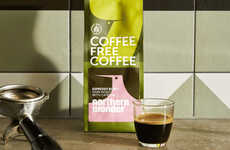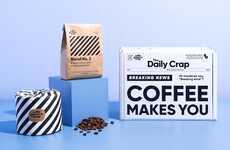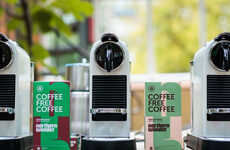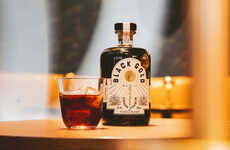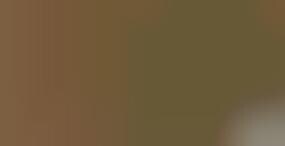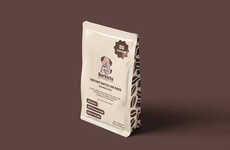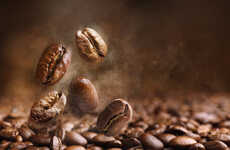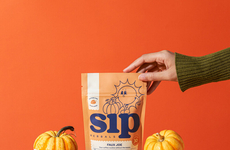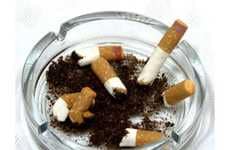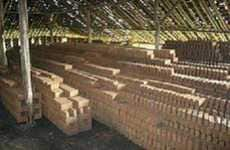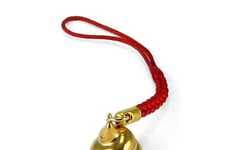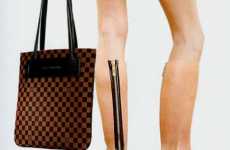
For a few years now, people have been buying Animal Poo coffee, the world’s most expensive caffeinated beverage. Now fake animal poo coffee has been showing up on the market.
THE ORIGINALS - The beans are eaten by Indonesian Wild Civet cats whose droppings are later picked up by harvesters who process the beans and sell them. The exotic beans have become a high-status beverage consumed by the world’s most affluent people. The LA Times pointed out that even the Royal Family is a fan of the stuff. Imagine Charles to the Queen, “Mummy, would you like another spot of animal-poo coffee? Your cup looks like it could do with a top-off.”
THE FAKES - Any exclusive item is quickly knocked off, and these berries are no exception. 42% of the Kopi Luwak beans on the market are fakes… what on earth could compose fraudulent cat droppings?
What makes this java so special, anyway? For one, the $600/lb beans aren’t bitter like normal coffee—the traditional taste associated with coffee is weakened, and the occurance of caffeine jitters is greatly reduced due to enzymes in the gut of the wild cats.
Sound gross? Connoisseurs could convince you otherwise. “An Indonesian coffee lover described the scent as the smell of moist earth after a rainfall, with hints of vanilla, that teases the palate for hours after the cup is empty.”
The cats are facing extinction, which further drives up the cost. You need a lot of felines to run this type of business—1 lb of their feces produces less than 5oz of beans, and after roasting, this is reduced an additional 20%. The cats are beginning to face extinction for a number of reasons; the South Chinese eat them as a delicacy so many are killed for cuisine. As well, in 2003, they were blamed for causing SARS to many were killed off.
Here’s the original Trend Hunter article:
THE ORIGINALS - The beans are eaten by Indonesian Wild Civet cats whose droppings are later picked up by harvesters who process the beans and sell them. The exotic beans have become a high-status beverage consumed by the world’s most affluent people. The LA Times pointed out that even the Royal Family is a fan of the stuff. Imagine Charles to the Queen, “Mummy, would you like another spot of animal-poo coffee? Your cup looks like it could do with a top-off.”
THE FAKES - Any exclusive item is quickly knocked off, and these berries are no exception. 42% of the Kopi Luwak beans on the market are fakes… what on earth could compose fraudulent cat droppings?
What makes this java so special, anyway? For one, the $600/lb beans aren’t bitter like normal coffee—the traditional taste associated with coffee is weakened, and the occurance of caffeine jitters is greatly reduced due to enzymes in the gut of the wild cats.
Sound gross? Connoisseurs could convince you otherwise. “An Indonesian coffee lover described the scent as the smell of moist earth after a rainfall, with hints of vanilla, that teases the palate for hours after the cup is empty.”
The cats are facing extinction, which further drives up the cost. You need a lot of felines to run this type of business—1 lb of their feces produces less than 5oz of beans, and after roasting, this is reduced an additional 20%. The cats are beginning to face extinction for a number of reasons; the South Chinese eat them as a delicacy so many are killed for cuisine. As well, in 2003, they were blamed for causing SARS to many were killed off.
Here’s the original Trend Hunter article:
Trend Themes
1. Fake Animal Poo Coffee - Opportunity for innovation in developing techniques to detect and prevent the production and sale of counterfeit animal poo coffee.
2. Exotic Coffee Bean Market - Opportunity for disruptive innovation in creating alternative sources and flavors of high-status coffee beans.
3. Wild Cat Conservation - Opportunity for innovative efforts to conserve and protect wild cat populations and their habitats.
Industry Implications
1. Gourmet Coffee - The gourmet coffee industry can explore the creation of unique and high-status coffee flavors and sources, while also addressing the issue of counterfeit coffee beans.
2. Wildlife Conservation - The wildlife conservation industry can develop innovative strategies and initiatives to protect and preserve endangered wild cat species and their habitats.
3. Luxury Food and Beverage - The luxury food and beverage industry can cater to the demand for unique and exclusive gourmet products, while also addressing issues related to counterfeit and unethical practices in the market.
2
Score
Popularity
Activity
Freshness

